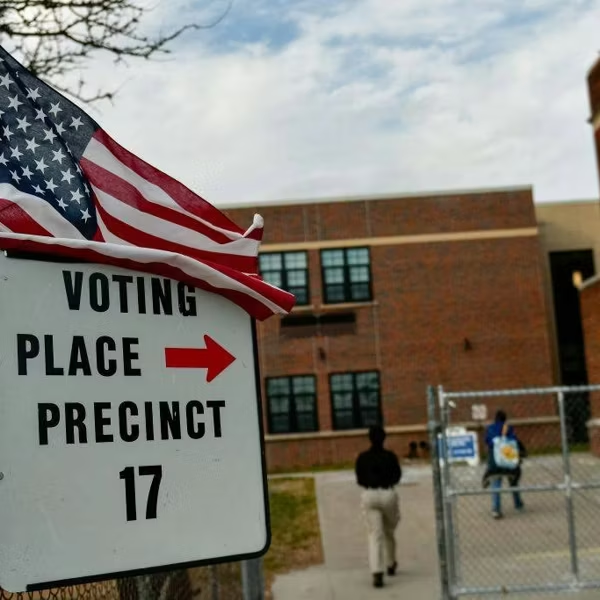e first great electoral challenge to Governor Scott Walker's assault on labor rights, public education, and public services in Wisconsin came in an April 2011 state Supreme Court race. Incumbent Justice David Prosser, a former Republican legislator who had mentored Walker when both served in the legislature, faced an unexpectedly robust challenge from state Assistant Attorney General JoAnne Kloppenburg, who argued that the state's highest court needed to be independent from the governor.
The officially nonpartisan race divided the state. Walker's Republicans and conservative donors rushed to defend Prosser, while labor activists and many Democrats backed his challenger.
However, Kloppenburg endeavored to keep above the partisanship--emphasizing that she had worked well with Republican and Democratic attorneys general, and saying, "I have not wavered in my beliefs and will not start if I am elected as a justice. My focus will be on the court without any political bias."
A lot of Wisconsinites approved. After a long night of vote counting on April 5 and April 6, preliminary results gave Kloppenburg a 204-vote lead over Prosser. Walker allies jumped into action. Among the 1,500 pages of documents from a John Doe inquiry into allegations of illegal campaign activity by Walker and his associates, which were obtained and published by the The Guardian, was a flurry of e-mails regarding the Prosser-Kloppenburg race. The basic premise outlined before the election was that keeping Prosser on the court was essential: "And if we lose him, the Walker agenda is toast," read one message.
The Walker allies talked about how to assemble a team and raise resources to challenge the initial result in what was expected to be an arduous recount. But they weren't just interested in the actual recount--a long and highly controversial process that would eventually keep Prosser as part of the high court's Walker-friendly conservative majority. They were interested in shaping public opinion.
How? By "messaging 'widespread reports of election fraud' so we are positively set up for the recount regardless of the final number."
"This cynical 'messaging' is sadly validating of what many of us have said." --election law expert Rick Hasen
Writing in an April 6 e-mail to a list of Republican operatives and conservative activists that included former Wisconsin State Assembly Speaker Scott Jensen--a prominent advocate for "school choice" initiatives that were often challenged in the courts--Metropolitan Milwaukee Association of Commerce Vice President Steve Bass asked, "Do we need to start messaging 'widespread reports of election fraud' so we are positively set up for the recount regardless of the final number? I obviously think we should."
Jensen replied in the affirmative and added, "Stories should be solicited by talk show hosts."
But there were no "widespread reports of election fraud" on the part of Kloppenburg or her supporters. It was just a "messaging" strategy. There was no reason to suggest that crowds of voters had cast ballots illegally or that the voting process should be distrusted--or discredited.
Richard L. Hasen, the Chancellor's Professor of Law at the University of California-Irvine School of Law, who is a nationally respected expert on voting issues, highlighted the exchange in his popular Election Law Blog.
"It shows that all this talk of fraud is all about manipulating Republican public opinion to believe that if Democrats won a close Supreme Court race, and the recall went to a recount, [then] the election was stolen by Democratic voter fraud," wrote Hasen. "This cynical 'messaging' is sadly validating of what many of us have said."
Charges of "voting fraud" and "election fraud" are peddled for purposes of "messaging" and to advance a cynical agenda that seeks to limit and undermine voting rights and respect for the political process. Walker has been criticized throughout his governorship for promoting that agenda with advocacy for restrictive election rules--including harsh voter-ID requirements and restrictions on early voting in Wisconsin--that he suggested would make it "hard to cheat." In August, US District Court Judge James Peterson overturned key provisions Walker had signed into law. "I am persuaded that this law was specifically targeted to curtail voting in Milwaukee without any other legitimate purpose," the judge observed. "The legislature's immediate goal was to achieve a partisan objective, but the means of achieving that objective was to suppress the reliably Democratic vote of Milwaukee's African Americans."
At the same time, however, Walker's candidate for president, Donald Trump, was mimicking discredited voter-fraud theories and saying at a rally in Altoona, Pennsylvania, "The only way we can lose, in my opinion--I really mean this, Pennsylvania--is if cheating goes on."
That's not a legitimate concern.
That, as Governor Walker's Wisconsin allies have reminded us, is "messaging."



